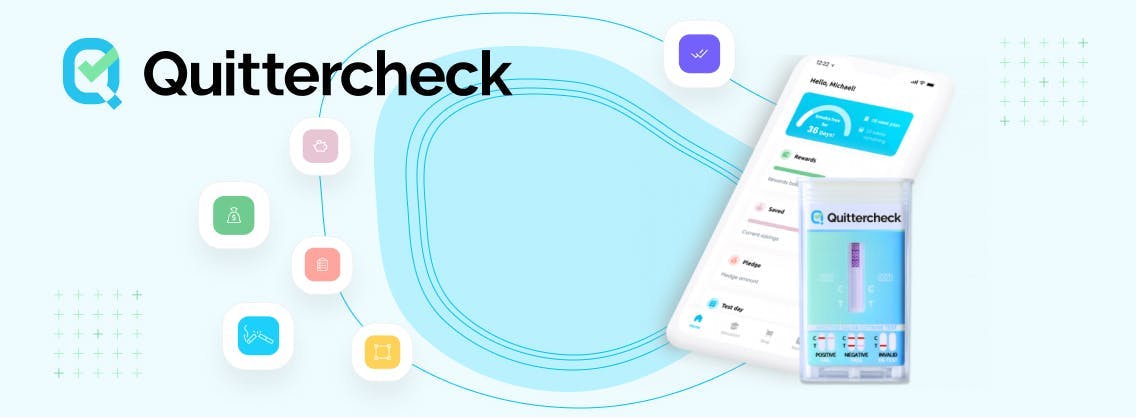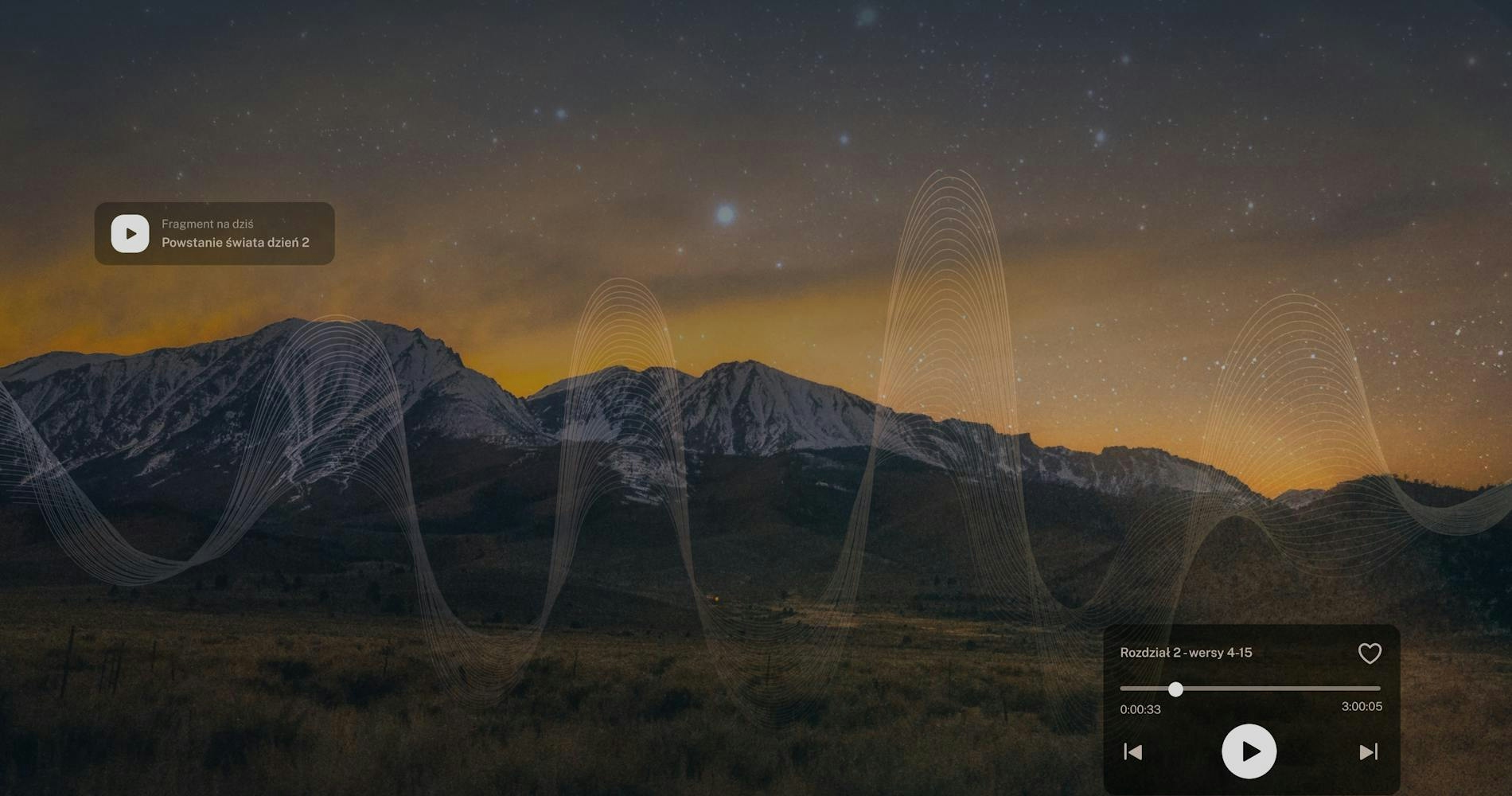The Audio Bible Super Production
Project background
The recordings are based on the text of the Millennium Bible in the Polish version, NARBRE in the US version, and Biblia Iglesia de la America in the Spanish version.
Polish recordings were done between 2015 and 2018, with more than 500 people involved in the process (famous Polish actors among them). The Audio Bible team created recordings covering all books from the New and Old Testaments.
Having great success with the Polish version, the project raised further capital to expand its operations to abroad markets. During the years 2020-2021, The Audio Bible team worked on the English version of the recordings. In June 2022, the content was also released in the Spanish language.
All of the recordings are done with state-of-the-art binaural microphones and software. As a result, users may experience a spectacular 3D sound space that could be enjoyed while listening on standard headphones.
The Audio Bible is an audio streaming app. It offers its users access to high-quality 3D recordings of the Bible. It contains over 5000 tracks. Available in Polish, English, and Spanish. Uses a subscription payment model.
Audiobook industry
The rise of technology has played a large role in today’s audiobook market. When consumers converted to smartphone technology, digital audiobooks grew in popularity over physical products.
The 2021 APA consumer survey stated that consumers, on average, listened to 7.6 titles from March 2020 to March 2021 - 1 more title than a year earlier.
For comparison, in 2010, digital and physical audiobooks shared 1.96% of total trade revenue; in 2020, digital audiobooks alone contributed 8.3% of total trade revenue in the book industry.
The global audiobook market was valued at USD 4,219.0 million in 2021 and is expected to expand at an annual growth rate (CAGR) of 26.4% from 2022 to 2030.
With smartphone technology becoming more innovative, consumers engage more with mobile devices to consume them. Along with this behavioral change, some customers switched from classic readers to podcast listeners and audiobook users.
Audiobooks as listening-based entertainment have also become more popular due to the pandemic, as listeners tended to “play” a book instead of reading while doing daily activities.
In turn, audio publishers started investing in producing their titles as digital downloads to be compatible with mobile devices and, therefore, easily accessible and always at hand.
The Audio Bible is a product that follows these trends and shows that even religious content can be adjusted to the needs of modern customers.
Features
Subscriptions
Virtual bookmarks
Multi-language content
Regardless of payment source, users can access their accounts on different devices (with different operating systems). Pricing can be managed without app releases, allowing for differentiation prices among users/user groups. Prices for given users may be changed manually or by providing promotion codes to users.
Scope of work
The earlier version of the Audio Bible app used a partly customed solution from the Audioteka platform. However, it didn’t meet our client's requirements due to inefficient further development.
Therefore, we had to start from scratch. We chose Flutter for mobile app development, .NET for backend development, and React for web admin app development.
We also used Azure Media Services for audio transcoding and streaming. For the purpose of streaming to multiple users on three continents, we used Azure CDN to make latency less dependent on the user's physical location and stream to many users simultaneously.
Their main goal was to change the payment model from a one-time purchase to a subscription model. On top of that, LeanCode faced the challenge of providing a subscription model that would meet many business requirements. It had to offer in-app subscriptions for iOS and Android and allow buying a subscription on a web app via Stripe.
Another goal was to enable the client to manage prices depending on the user’s location (territory-specific prices). The user can be from Poland, but while changing the country, they may see a different price for the app. Price can be manually defined. However, this does not apply to the Stripe system (it doesn’t allow for location tracking on the web).
We also implemented the possibility of using gift codes. For this solution, a custom virtual subscription mechanism via promotional codes was required to be independent of the App Store and Google Play.
Additionally, we built a Web administration panel where our client can manage the content shown within the app. An example is "Content for Today," a newly selected part of the Bible that can be changed daily and shown to certain users. We used React framework and component library Ant Design from Alibaba.
A dedicated Admin app also allows for replacing audio files, managing users (block an account, delete), and generating promotional codes. Users can be assigned to target groups - assigning is done with a code or by the admin user. The admin panel communicates with the server and knows where the specific users came from. Then the user sees a special offer.
Reviews of our work

When we decided to implement the listenership in the 3D sound, we knew we needed a better app - I would compare it to a good Porsche. The LeanCode team managed to create something we are happy with, allowing us to grow our business by scaling the model. They worked on this project with the utmost care, professionalism, and attention to our needs.


When we decided to implement the listenership in the 3D sound, we knew we needed a better app - I would compare it to a good Porsche. The LeanCode team managed to create something we are happy with, allowing us to grow our business by scaling the model. They worked on this project with the utmost care, professionalism, and attention to our needs.


The team manages the engagement efficiently and facilitates weekly meetings. They use Jira and the Agile methodology effectively. As a result, they always meet deadlines and deliver according to requirements.


The team manages the engagement efficiently and facilitates weekly meetings. They use Jira and the Agile methodology effectively. As a result, they always meet deadlines and deliver according to requirements.

Let's talk!

Key takeaways
- Although subscriptions may seem easy to end-users, there are a lot of corner cases that have to be covered to deliver the best experience, such as: cancellations, trials, refunds, price changes, different pricings per region, and different prices per user group.
- You also need to remember that all payment providers (Google, Apple, Stripe) have their way of managing those.
- Managing large amounts of content that differ in size, length, and quantities within a group requires well-structured communication between the app and the backend.
- On top of that, you add a layer of offline listening and DRM protection - once again, you have to cover many corner cases to ensure that users can enjoy audio streaming without interruptions.
Additional value delivered
LeanCode created a platform that can be further improved and developed when needed. Our structure allows entering new markets with different languages of content as well as gives almost endless flexibility when it comes to pricing adjustments.
Subscription model
Marketing automation process
Content management platform
Technologies
Platforms
Awards & press releases
How do we handle mobile app development?
Other mobile apps


Mindy


Quittercheck
Let's schedule a 20-minute talk!

This is the initial scoping call with one of our experts. Its purpose is to get a better understanding of what you want to build. After this call, you will have an idea about your project's feasibility and the ballpark estimates.














